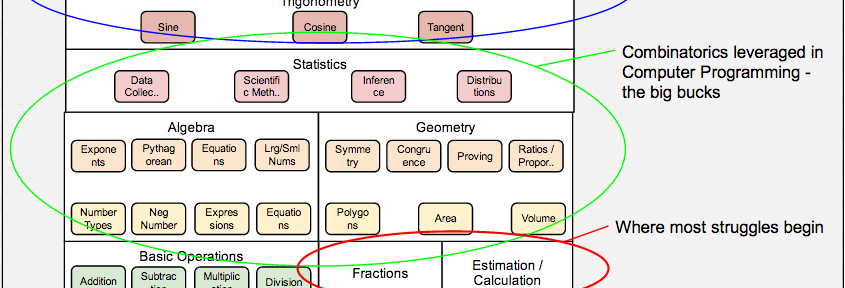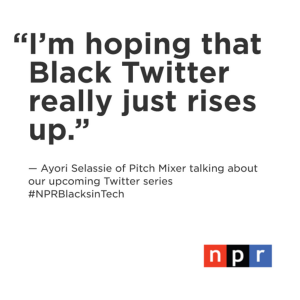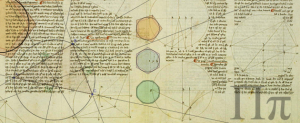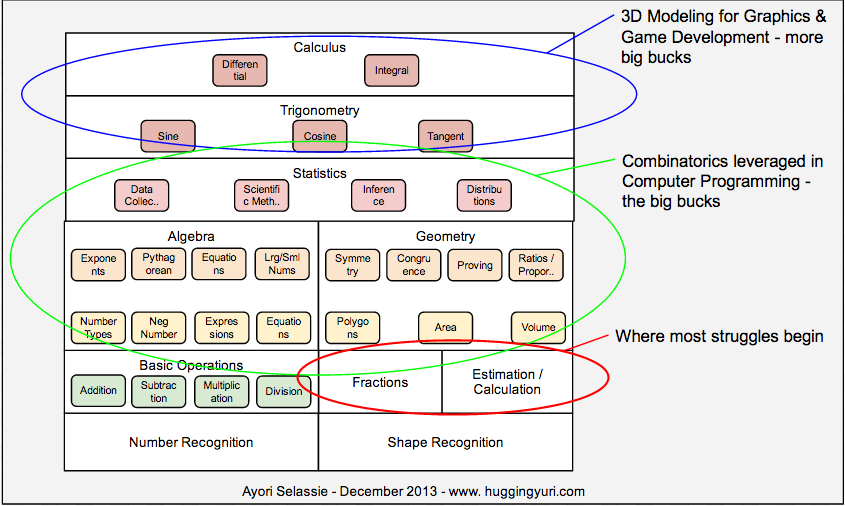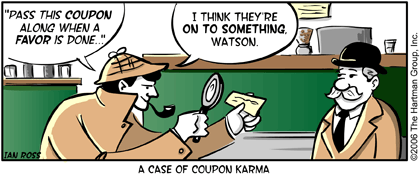The conversation around diversity is so broken right now it often doesn’t even sound like it’s about people. It comes off like a conversation for policy, regulation, and it sounds like a pill. Diversity isn’t just race and gender and it certainly isn’t a pill. Diversity is about cultural exchange and cultural exchange is about being open to sharing experiences. Just like your mother taught you, sharing is caring. The bottom line is are you willing to reach outside your circle and bring in someone new whose unique differences will add new flavor to your network?
Discussions about science and technology often benefit from abstract terminology and references, diversity however does not because people are not objects, infrastructure or research projects, they are living beings who are a product of their life experiences and beliefs. When you use abstractions for people most often what you get are stereotypes and far reaching assumptions. This is why the concept of diversity has become a broken record. The black and white dialog in America continues to hold historical fears, violations of human rights, defensive positions and to put it bluntly, pain. We felt it all over again with the Trayvon Martin case. Yet Trayvon Martin wasn’t about diversity, it was about being human and how people can make assumptions, judgements when they don’t know and respect each other like human beings.
We need to take the conversation down from macro level abstractions to a face to face, equal, level playing field engagement between real people. That is the only place where exchange can actually occur. This is why I wrote this piece to share the 5 things we need to understand to create more and better innovation and some people you need to get to know as well.
-
Diversity is not a pill
Change is uncomfortable. New neighborhoods, new jobs, new mother in-law, it’s not always easy. Culture has a strange way of being both resistant to change and highly adaptive. Traditions like presents during Christmas hold fast while every few years a new dance craze finds it’s way into wedding parties by people of all races and cultures, remember the electric slide, the marcarena, the cupid shuffle etc. The experiences that make their way past the gates of tradition are pretty much never forced. There is no nurse Hatchet standing over you to monitor as you swallow the pill that will make you bob your head to the new Kanye West track (when you generally favor good dub). Rather you’re in the grocery store searching for your favorite jar of olives or pickled okra and halfway through the Kanye West track you realize it doesn’t sound so bad. As a matter of fact, it’s pretty damn good. But if someone asked you to sit down and listen to (and swore you would love it!) you would probably shake your head no way thinking frankly, “ain’t nobody got time for that!”
Human beings are social creatures, even the anti-social ones are social and we all generally want one thing; to be valued which connotes being understood and others appreciating your value. If everyone has a mission in life then we’ve all got an agenda. It should be no surprise that the way we fulfill our mission is with the help of other people. That race to find the person or people who will help you fulfill the mission can blind you. You don’t often know what you’re looking for until you find it, but it doesn’t stop you from making guesses and assumptions about the type of people you need to connect with. When you need to meet new people, like most challenges, we tend to go the path of least resistance, we stick with what is comfortable to us. If we believe that elite investors are generally white male grads from Harvard then we’re likely going to overlook Ken Coleman because he just doesn’t fit the image in our heads. If you realized you were making this mistake you would think that is was unacceptable.
Over the last year every tech conference I’ve attended has held a conversation about diversity, most focused on gender due to the recent “Lean In” trend started by Sheryl Sandberg and likewise at every one of these conferences I’ve heard someone complain about the diversity topic. The general dialog starts with “I’m not prejudice or anything, so why do I have to listen to this? I came here for <insert technical topic here>!” While I appreciate the message being sent I often notice the same people engaging in the diversity conversation over and over. In other words, we’ve been preaching to the choir, being overly obvious about our agenda for diversity and kinda coming off like the borg (you will be assimilated), or at least that’s how the agenda is being painted all too frequently. The conversation we need to be presenting during tech conferences is on the value of urban communities, how they impact world culture and technologies and how we must harness the power of urban influence to transform urban communities into innovative epicenters, create global networks, nurture and essentially authenticate and professionalize the skills and cultural proclivities of at risk communities. That’s a real solution, not a pill.
-
Leadership & Mentoring go hand in hand
Silicon Valley alone won’t get us to the Jetson’s. The communities in the Valley over the past 30 years have done a lot to lead the world in advancement but it hasn’t been enough to deliver the kind of global innovation that we need. If anyone says we’ve done enough they just aren’t thinking big enough. We haven’t solved enough big problems yet and we won’t unless we get even more creative and learn to cultivate more diverse teams who see differently, spot different problems and solve problems differently. Leadership and growth requires cultural perspicacity that can leverage culture, one’s self reflection, vision for innovation, the ability to identify skills sets and align them with current trends and eliminate as many of the risks that present themselves in any and every solution to a big problem.
The good thing is the tools and experiences of Silicon Valley are being shared. Steve Job’s mentor and one of the guys who started Intel, Andy Grove encouraged America to be “vigilant as a nation to have tolerance for difference, a tolerance for new people.” In response to that advice it’s not uncommon for leading names in Silicon Valley to leave twitter imprints across the globe from Amman to Tel Aviv to South Africa mentoring, sharing, and supporting the development of innovation centers all around the globe. Additionally, emerging leaders from regions all over the world come to Silicon Valley to great benefit, they spend their time deepening their network and developing their influence capabilities because to be honest, strong connections are the best constant in an industry that moves as fast as tech. Not to underestimate the benefit of weak ties, but you don’t just invite anybody to the White House, or even your own house for that matter.
These global exchanges are sometimes facilitated by special programs such as TechWomen, a professional mentorship and exchange program (of which I am a professional mentor) developed in response to President Obama’s efforts to strengthen relations between the United States, the Middle East and North Africa (thanks Hillary!). The activities setup within these programs align with the belief that networks and connections are vital to facilitate real growth opportunities. These leaders go on to not only build companies, but communities as well.
I similarly set out to fill a network gap when I started Pitch Mixer Entrepreneur Forum to support the growing innovation center in Oakland. Silicon Valley is key in influencing the type of qualities these communities will develop. The world looks to us as a model. As the Valley mentors the development of new innovation centers around the globe, we need to be cognizant and share what we don’t do well (e.g. diversity) and why that harms our future innovation opportunities, and what we’re planning to do to change it. It’s even more critical that developing nations learn this from us now because while the consequences of being different can be dangerous and uncomfortable in the US, it’s frequently deadly in other nations. We have a global responsibility to lead the way to a better future.
Until the options and alternatives that at exist at Palo Alto High exist at the high schools in Bay View, Hunters Point (San Francisco’s District 10), West Oakland, Detroit, Chicago or Addis Ababa we are not responsible leaders. The options should be standard to study Java and Robotics (among other skillsets that enable problem solving in a real world context) at every high school because when you open options you open possibilities. When you provide context for education that is linked directly to solving real problems the motivation to learn Science, Technology, Engineering and Math become clear as well.
One of my favorite examples of how Silicon Valley’s network is growing with the increase in option is with NewMe Accelerator. I peeked in on their most recent Demo Day at Google last week and saw a variety of innovations from developer collaboration tools (AnnoTree co-founded by Brian Clark) to disease diagnostics (BioNanovations founded by Charleson S. Bell) to mentoring apps (MentorMe co-founded by Brit Fitzpatrick).
What’s more than the technology these individual innovators have built, they also give back to the community in a very real way by being visible and accessible (even if NewME itself is no longer “open” since it has recently become invite only). I bumped into Brit Fitzpatrick while she spoke on a panel on tech entrepreneurship targeted for parents of young girls in the Black Girls Code Build an App in a Day Workshop in Oakland. The message she left with parents was this: your daughters are going to be sitting sitting up here one day talking about how they first broke into tech. Likewise when I bumped into Brian Clark at TechCrunch Disrupt I learned that he spends a few hours a week in the Mission (underserved area of San Francisco) teaching high school kids in an after school program in the how to code.
Am I the only one who gets chills from these stories? These young entrepreneurs are leading by example and taking the mentorship they received from programs like NewME to new heights by duplicating themselves in youth who might normally be overlooked. Then there is Tristan Walker who was an early employee at FourSquare who went on to start Code2040 to bring college students of diverse backgrounds into internships at hot startups so they will leave with experiences that will help them thrive as executives and leaders in the startups community in the future. This perspective of paying it forward is the best breed of entrepreneurs, they are multipliers in ways that defy the norm in a very powerful and impactful way.
-
Innovation is born within special communities ripe for change
The concept of leaders and leadership is overrated and communities are underrated in conversation. Steve Jobs, Bill Gates, Paul Graham and a host of other cool dudes were all great at what they did, but they would all be nowhere without the communities in which they lived and thrived. A great deal of Paul Graham’s numerous essays describe how community is important. He is a big advocate of going where the environment is best suited for your task (in most cases he is talking about start-ups environments). About environments he states, “You might think that if you had enough strength of mind to do great things, you’d be able to transcend your environment. Where you live should make at most a couple percent difference. But if you look at the historical evidence, it seems to matter more than that. Most people who did great things were clumped together in a few places where that sort of thing was done at the time.”
While everyday new tools advance our social capabilities online, the real advancement still happens face to face, the result of bumping into an acquaintance on the street after a trip to the Barber shop (how Pitch Mixer was born when I ran into Kalimah Priforce). Not just any conversation though, I’m talking about escalating conversations. The kind that start with an idea, and end up as a full blown vision. These conversations die too quickly in overly traditional communities. The key phrases to master are “and?”, “why?” and “tell me more?” There is something special about curiosity, interest, and patience, it helps others explore their ideas, it helps others grow. As people flock to silicon valley from other regions they don’t always pick up on this principle and that is unfortunate because it means they are missing out on the real special bits. The good news is that you can incubate this quality in any community and it starts with something you’d never believe. Friendship.
-
Great Communities thrive on Friendship & Sharing
The increasing amplified voice of cyber bullying is poison. It’s the result of insecurity and a lack of intimate, trusting, open, and supportive friendships in anti-social people who are closed off to new ideas. Bullies don’t share, they hoard and they scare people away with their “survival of the fittest” attitude. This is not to say there is no room for strong or even blunt personalities. You can be direct and constructive without being a socially inept bully. Strong and bold personalities have a place in the best communities and they know how to engage difficult subjects without making it personal. This is why they can be beneficial, but when any persona switches to talking for the sake of it’s own ego rather than listening, what we see is a breakdown in communication, community and an imbalance in the dynamics of power. That imbalance kills innovation, it kills ideas and I hate to be so bleak but it even kills people. That is why we have to get serious here.
Think about this for a moment… Have you ever noticed that some of the most powerful and influential people are very open and supportive? Yet they can be so hard to get to and access because at times it can feel as if swarming around the powerful and influential people open to new ideas is an ocean full of selfish and overly competitive bullies who want to be the gate keeper to the cool people. If only more diverse people and ideas could reach the people who are open to hearing them? The cool people are looking for people who think different. They are frustrated with being served with what others think they want to see, rather than what is just freakin awesome.
In general people in Silicon Valley want you to succeed, they are friendly, open and interested in knowing you, not just your idea. This is really important to understand because we don’t work with single ideas for 5-10 years, we work with people, and the ideas pivot frequently. If these people are part of our trusted network (e.g. friends), working with them through the ups and downs becomes a bit easier. Sharing our challenges and goals with them become easier too. Whether your ties are weak or strong, there is a way of being and caring for people that builds real lasting relationships. I’m not saying be everyone’s BFF but having a vested interest encourages a natural sharing of resources which allows innovative ideas to continue to thrive while the gaps between achieving fruition and solid execution slowly close.
-
Make opportunities for non-technical participants
Innovation is not purely technical. Research and discovery is an art frequently inspired by other art or creative pursuits. From music, to photography, to food and travels. When I say non-technical I’m not talking about business people. I’m talking about regular people. The bus driver, the woman who runs the ice cream parlor on the corner, the guy in the train station who plays saxophone for tips during your morning commute, your neighbor down the hall who is the single mother of 3 kids and comes to you to learn how to spy on her kids activities online. These people are also a part of your community and they are also diverse. Not only are they a part of the community, if you are an entrepreneur they might be your first customers. It’s important that they are welcome as full participants in your community just as much as the uber developer woman. Keep in mind that they might also be raising the next generation of engineers and entrepreneurs, they have a stake in this too.
The worst thing we can do as a community is talk down to the non-technical part of our community or exclude them. We need not be like the borg. Their questions, no matter how simple will be some of the greatest questions ever posed to you. They will pull you out of your jargon and make you step back to another perspective. They bring with them a critical eye and a creativity that is worth it’s weight in gold. The other day as I sat with the parents at the Black Girls Code workshop I realized how much we exclude and alienate these parents with our boxed jargon and thinking. If you engage with non-technical people frequently enough and with the proper level of respect you will drop your ego down a few notches, I guarantee. You will see the beauty in them as inspiration and your vision will expand as you get out of the weeds (and out of your cubicles) more often.
By the way, to take this a step further I’m advocating for better resources for adults who want to migrate to STEM fields and parents who want to support their kids in STEM. I’m talking about eliminating income and social bias, welcoming those with minimal exposure to technology and support the prompting of futurist vision. I’m talking about robots and laser reading projection and all that kind of crazy…. stuff. 
People you need to know in Silicon Valley
I was recently asked to come on NPR radio’s Tell Me More to share stories of African Americans in or around Silicon Valley who are making a difference in and through tech I looked no further than my friends. Where 3 years ago I only knew a handful of African Americans in tech fields, today I can go on and on. I also know many more women and men of other ethnicities and cultures. My network has grown exponentially simply through a pure desire to know incredible people. The more I focused on cultural exchanges and getting to know people the more fun I had, the more doors opened and the more I wanted to stay in tech forever because my network was well, growing. I recently had a chat with salesforce.com co-founder Parker Harris and he emphasized the importance of prioritizing great people over ideas. To that effect I want to share my own personal list of incredible African American people who are making a difference in Silicon Valley so you can get to know them as well.
-
Kalimah Priforce Founder of Qeyno Labs was selected as an Echoing Green BMA (Black Male Achievement) Fellow, for 2013 Qeyno turns career discovery into a game, Kalimah’s theory of change is focused on mentorship. Online his theory manifests through gaming in Qeyno, offline the theory manifest through the Startup Weekend BMA hackathon which will be the first weekend in February, mark your calendars! The BMA hackathon has a special spin than other Startup Weekend Hackathons as 25% ($25) of every ticket goes toward sponsoring a young black male to participate and each team will have a sponsored attendee. This will also be the first Startup Weekend in Oakland and it’s the first hackathon focused on Black Male Achievement. The theme of the hackathon is “Could an app have saved Trayvon Martin and can we build a Silicon Valley that lives up to Dr. King’s dream?”. Kalimah also co-founded Pitch Mixer with me and he knows a gazillion people.
-
Jason Young – Co-founded Mindblown Labs and launched the most successful educational game startup via Kickstarter raising over $77k, he continues to build Mindblown Labs to teach financial literacy using gamification and also used his platform to start Hidden Genius Project which teaches high school age black boys to code and then some. The mission for both these organizations is “empowering the next generation with the skills they need for the 21st century economy”.
-
Kilimanjaro Robbs – Kili works along side several incredible people to run Hidden Genius Project and still his dedication stands out. The effects of his mentoring and leadership has been powerful to say the least. He is multiplying by passing his background in computer science to the younger generation and teaching them more than just code, he’s teaching them to stick with problems longer and showing them that STEM is fun.
-
Kimberly Bryant – BlackGirlsCODE. The impact she is making with these girls across the nation gives me chills. I was able to join the group on their visit to facebook when Sheryl Sandberg came to meet her girls during a hackathon. Kimberly’s mission gives me chills because of the impact she is making and the greater potential. I even trusted BGC with my very own daughter and that is a huge stamp of approval.
-
Ashara Ekundayo one of the founders of Impact HUB Oakland is certainly making a difference with their pop-up hood, by being in Oakland and inviting organizations to make a home for their businesses in their innovation space and is making a huge difference in being a force to change the makeup of Downtown Oakland. If you are looking for something to blow your mind in Oakland, look no further that Impact Hub Oakland. They recently hosted a YouthInTech summit there which invited youth and those working around developing a pipeline of youth to collaborate and exchange on solutions and problem solving.
-
Brian Clark – Co-founder of AnnoTree. Hailing from Detroit and coming to SF to participate in NewME Accelerator, Brian is one of my #1 candidates for building the community that could actually disrupt Silicon Valley and make Detroit the leading innovation center of the world. To circumvent this I’m still trying to convince him to stay in the bay area but honestly he’s a rising star no matter where he goes. His innovative application and platform to support collaborative mobile app feedback and development is slick. Go join the public beta! Tell him Ayori sent you.
-
Osandi Sekou Robinson – Founder of Vnylst.com with a vision to teach the youth that hip hop and hacking is synonymous. His branding is beautiful, his passion is boundless and when I have a board, I’m adding him to mine. In the near term I’m tapping him for UX and Design work.
-
Krys Freeman is one of today’s rising entrepreneurs, technologist and visionaries – and a firm believer in technology as a vehicle for radical change. To that end, Krys seeks out projects that stretch our imagination in order to tackle complex enterprise and civic challenges. She is the brainchild behind HeLLa Rides a carpool mobile app for neighbors and she’s going to help me find a replacement for my money scarf. And she codes.
-
Chris Bennett – Co-founder of Soldsie which is the best option for Selling on Facebook that drives engagement and sales. He also co-founded Black Founders along with Hadiyah Mujhid (who’s building something exciting right now), Nnena Ukuku (CEO of Black Founders), and Monique Woodard (Innovation Fellows, City of San Francisco).
-
Jeannice Fairrer Samani – CEO of Fairrer Samani Strategic Management firm-working with entrepreneurs and existing businesses to grow Global business development, leadership training whose focus is NGO’s and Women in Middle Management and Philanthropy. Jeannice is Founder of Black Women Entrepreneurs of Silicon Valley est. 1998 and a Mentor for the TechWomen program.
-
Jewell Sparks – President/CEO at Strategic Diversity Group INC and Founder at BiTHouse and Strategic Partnerships and Alliances at Blacks in Technology. This woman seems to make her way into everything tech from BiTHouse SXSW, TechCrunch Disrupt, Launch, SHRM to blacksintechnology.net. While she is generally behind the scenes she handles the work of diversity in tech from the business development, STEM and inclusion space.

